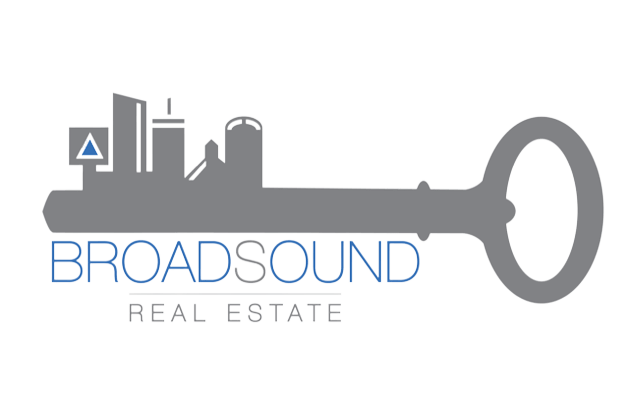The U.S. Department of Housing and Urban Development (HUD) recently announced a new policy that extends the loan modification term to forty years for certain Federal Housing Administration (FHA) loans.
This policy is aimed at helping homeowners who are currently struggling to make their mortgage payments. By extending the loan modification term, HUD hopes to provide more flexibility for struggling homeowners and help them avoid going through foreclosure.
Could You Get a 40-Year Mortgage?
A loan modification is a process that allows homeowners to modify their existing mortgage loan terms to make the payments more affordable and avoid foreclosure. But it is important to mention who qualifies for this type of loan.
The loan modification product is exclusive for homeowners who have FHA mortgages and are facing financial distress. It is specifically intended for those who are already in default on their loans and require assistance. However, it cannot be used for purchasing a new home or for refinancing purposes.
So, in this case, if you have an existing Federal Housing Administration mortgage you could qualify for the 40-year mortgage term.
A loan modification may include a reduction in interest rates, an extension of the loan term, or a change in the type of loan. The eligibility criteria for loan modification vary depending on the lender and the type of loan.
In general, homeowners who have experienced financial hardship and are having trouble making their mortgage payments may be eligible for the 40-year loan modification.
The increased loan modification term of forty years is a positive development for struggling homeowners who are facing financial hardship due to the ongoing COVID-19 pandemic. Many homeowners have lost their jobs or experienced a reduction in income due to the pandemic, making it difficult for them to make their mortgage payments. The extended loan modification term could help these homeowners by reducing their monthly payments and making it easier for them to stay current on their mortgage payments.
The Impact on Homeowners and Lenders
For homeowners, the increased loan modification term could mean the difference between keeping and losing their homes.
By extending to a 40-year mortgage term, monthly payments could become more affordable, allowing homeowners to stay current on their mortgage payments and avoid foreclosure.
This could also reduce the number of foreclosures on the market, which could help stabilize home prices. For lenders, the increased loan modification term could mean a reduction in losses from foreclosures.
Lenders typically lose money when a property goes into foreclosure. The foreclosure process is lengthy and expensive, and lenders may be forced to sell the property at a loss.
By offering loan modifications with longer terms, lenders may be able to recoup some of their losses by keeping homeowners in their homes. Additionally, loan modifications could help lenders avoid the costs associated with foreclosure, such as legal fees and property maintenance costs.
However, there are some potential drawbacks to this policy. A longer loan term means that homeowners will be paying interest for a longer period of time, which could result in higher total interest payments over the life of the loan.
Additionally, the longer loan term could make it more difficult for homeowners to build equity in their homes. Equity is the difference between the home’s value and the amount of the mortgage loan.
Homeowners build equity over time as they make mortgage payments and as the value of the home increases. A longer loan term could delay the accumulation of equity, which could limit homeowners’ options for refinancing or selling their homes in the future.
[Related Article: What is Home Equity and How to Use Yours in 2023]
Things to Consider Before Pursuing a Loan Modification
While the increased loan modification term is a positive development for struggling homeowners, it is important to weigh the potential drawbacks of a longer loan term before deciding whether to pursue a loan modification.
Homeowners should consider the higher total interest payments over the life of the loan and the potential difficulty of building equity in their homes.
Additionally, not all FHA loans are eligible for the forty-year loan modification term. Homeowners must meet certain criteria. For example, they should demonstrate financial hardship and be current on their mortgage payments before they can qualify.
First, let’s look at the potential impact of a longer loan term on total interest payments.
While the lower monthly payments may provide more breathing room for homeowners who are struggling financially, extending the loan term can also mean paying more in interest over the life of the loan. This is because interest is calculated as a percentage of the principal amount, and a longer loan term means more time for interest to accumulate.
Homeowners who are considering a loan modification should weigh the potential savings from lower monthly payments against the potential increase in total interest payments over the life of the loan.
Another consideration for homeowners is the potential difficulty of building equity in their homes with a longer loan term. Equity is the difference between the home’s market value and the outstanding mortgage balance.
Homeowners build equity by making monthly mortgage payments and through appreciation in the home’s value. With a longer loan term, it may take longer to build equity, which could make it harder to refinance the home or sell it in the future. Homeowners who are considering a 40-year mortgage should weigh the potential savings from lower monthly payments against the potential impact on their long-term financial goals.
Conclusion About Opting for a 40-Year Mortgage
In conclusion, the extended loan modification term of forty years for certain Federal Housing Administration mortgages provides a viable solution for homeowners who are struggling financially. With more flexibility and potentially lower monthly payments, this option can help homeowners avoid foreclosure and stay in their homes.
However, homeowners must carefully consider the eligibility criteria and potential drawbacks before pursuing a loan modification. They should weigh the savings from lower monthly payments against the increase in total interest payments over the life of the loan and the impact on their long-term financial goals.
Before deciding to apply for a 40-year mortgage, it’s important to explore other potential solutions, such as seeking debt refinancing through a program that offers lower interest rates.
Additionally, we strongly recommend that you consult with your real estate agent to ensure that you make the most informed decision for your financial situation.
If you are considering pursuing a loan modification, we can provide you with expert guidance on the best course of action for your unique circumstances.
Don’t hesitate to contact us today for assistance. Contact us today.















![eBook How to Increase Home Value [7 Simple Ways]](https://realestatejuanc.com/wp-content/uploads/2022/03/FORMAS-WAYS-TO-INCREASE-YOUR-HOME-VALUE.png)